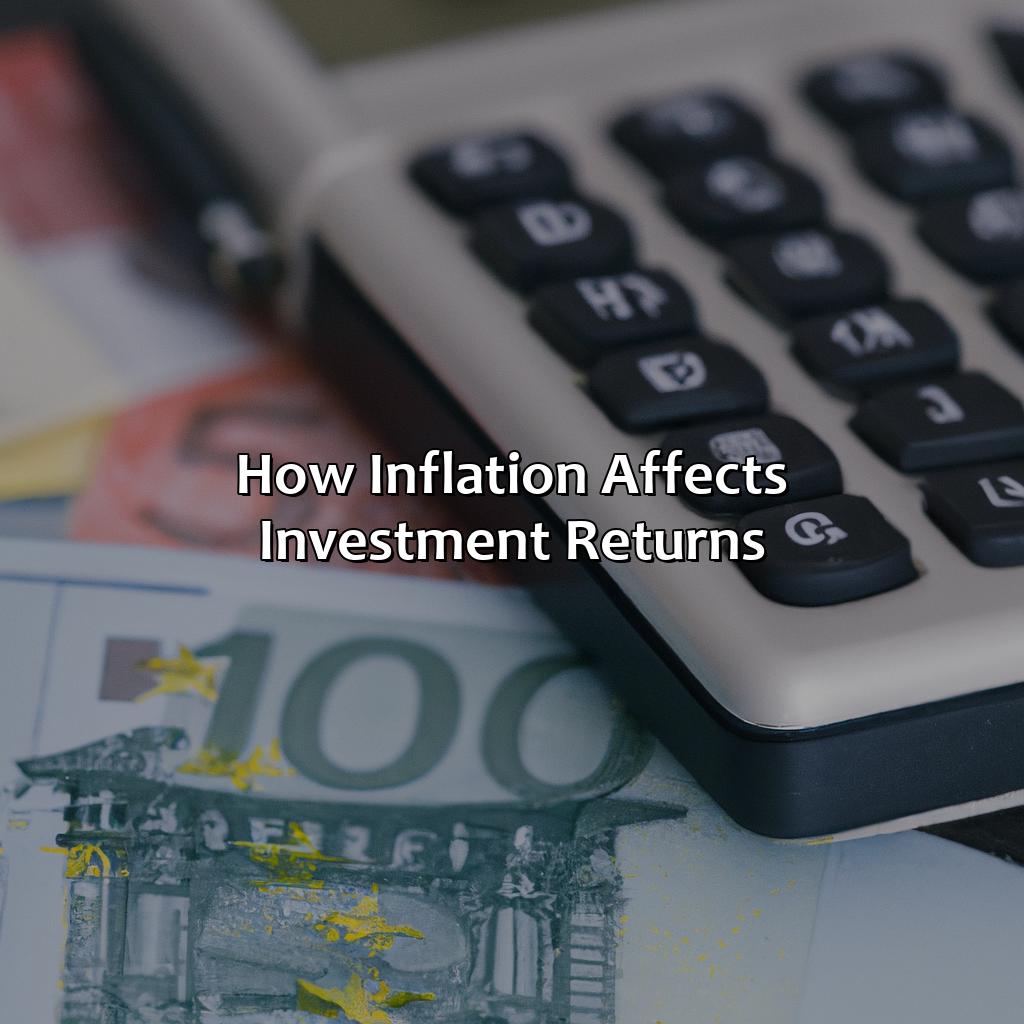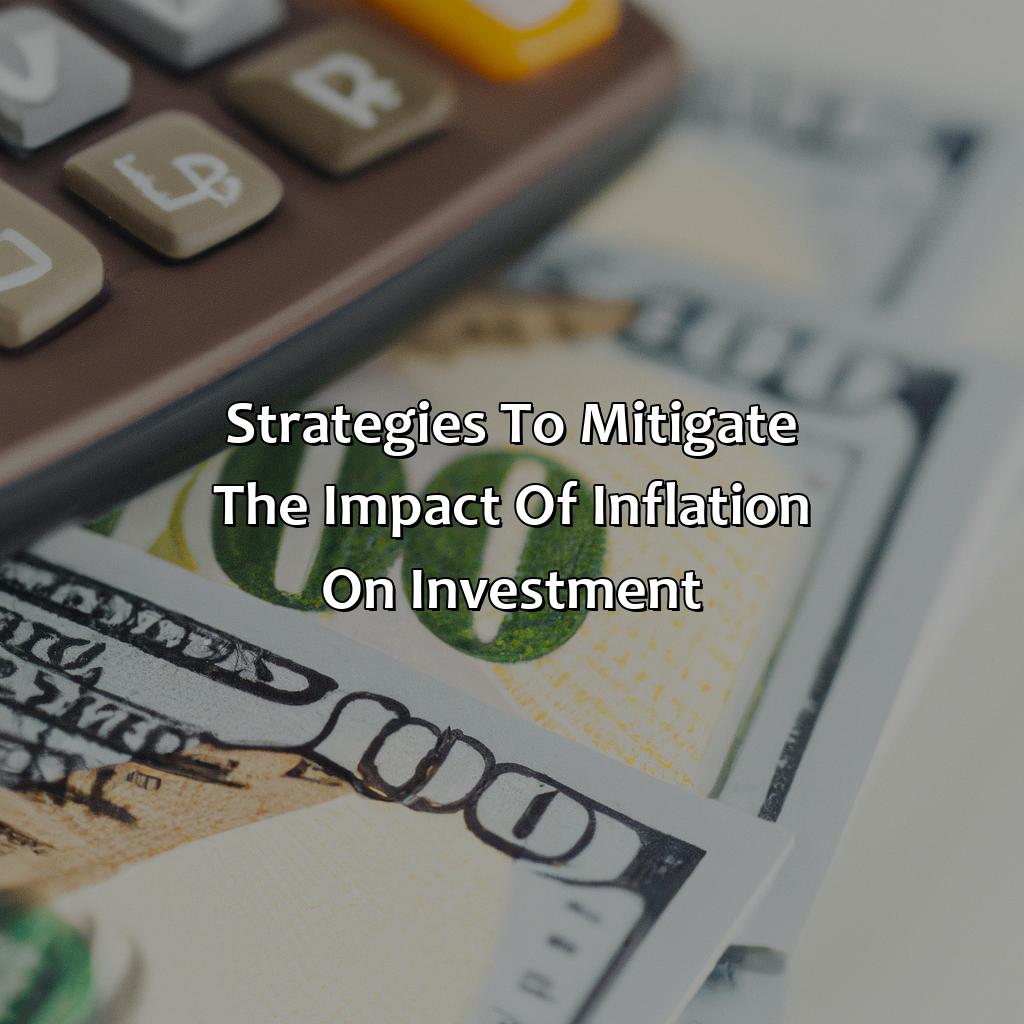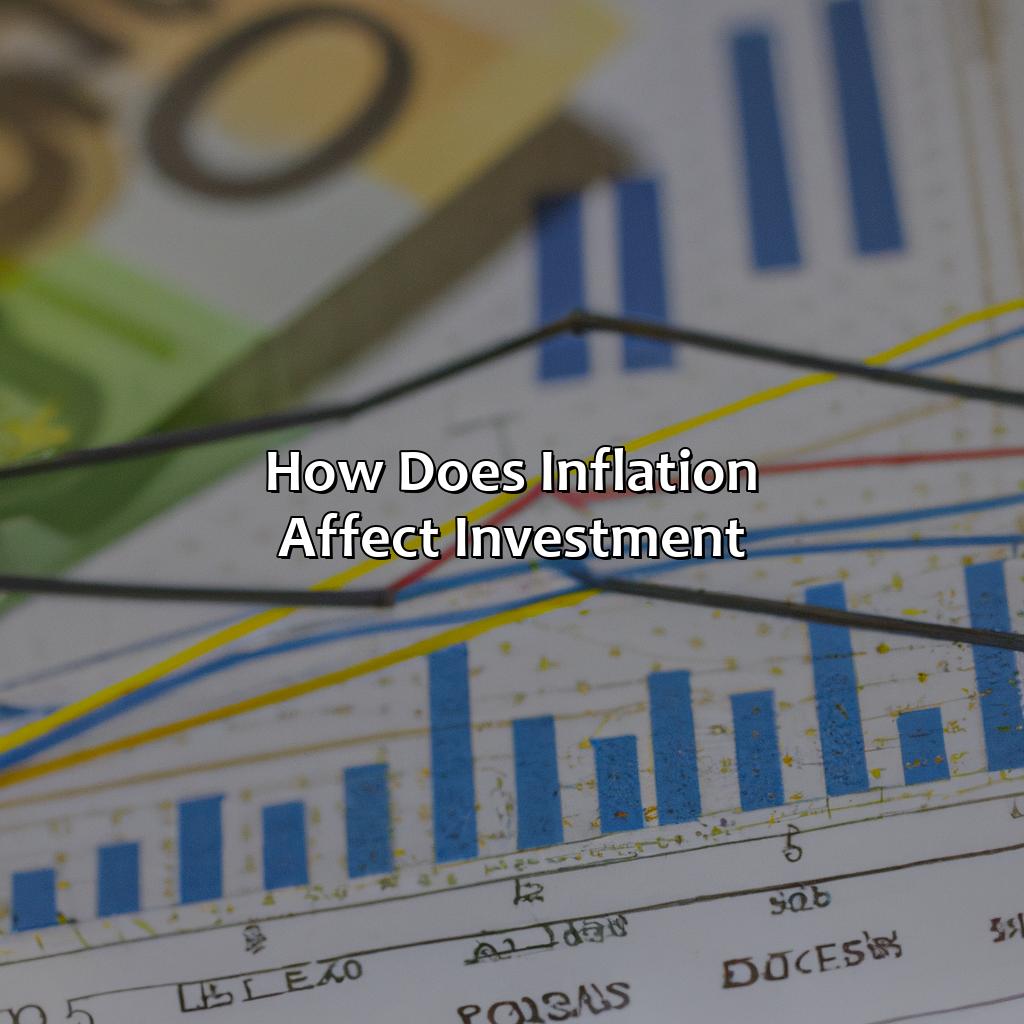How Does Inflation Affect Investment?
Key Takeaway:
- Inflation can negatively impact investment returns: As inflation increases, the cost of capital also increases, reducing the overall return on investment. Additionally, the purchasing power of returns decreases, making it more difficult to achieve financial goals.
- Stocks and bonds can be affected differently by inflation: While high inflation can lead to a decrease in bond prices, it can also lead to an increase in stock prices due to companies being able to increase prices and revenue.
- To mitigate the impact of inflation on investments, it is important to consider investing in assets that perform well in inflationary environments, diversifying investments, and investing in inflation-protected securities.
Is your investment portfolio feeling the heat of inflation? Do you want to know how it affects your investments? You’re in the right place to find out how inflation affects your investments and what to do about it.
How inflation affects investment returns
To get a grasp of how inflation influences your investment gains, you must grasp how it affects your investment portfolio. Let’s explore the subsections of this topic. These include:
- Higher costs of capital,
- Lessened purchasing power of returns, and
- its consequence on stock and bond investments.

Image credits: retiregenz.com by James Arnold
Increase in cost of capital
The rise in the price of capital has severe implications on investment returns. It increases the funding costs for businesses, making it more expensive to invest in growth opportunities. This can curtail firms’ profitability and limit their capacity to expand their operations.
In times of inflation, investors demand higher returns to compensate for the decreased purchasing power of money. This increases the cost of capital and hence raises the hurdle rate that firms have to meet while evaluating new investments. This causes a decline in investment spending, which results in lower economic growth.
Investors should consider investing in assets whose prices are expected to increase with inflation, such as commodities like gold and silver. They can also search for stocks that grow faster than inflation rates, which means that there is room for an increase in stock prices due to greater investor demand.
Pro Tip: Investors should always assess the impact of inflation on their portfolios and use diversification as a risk management tool to mitigate its effects.
Your investment gains may look impressive on paper, but with inflation at play, you’ll be lucky if you can afford a cup of coffee with those returns.
Reduced purchasing power of returns
The decrease in the real value of investment returns caused by inflation is a major concern for investors. The value of returns may remain constant or even increase nominally, but it becomes less valuable in terms of purchasing power due to rising costs of goods and services. This phenomenon is referred to as the erosion or debasement of purchasing power.
Investors must factor in the inflation rate when choosing investments to ensure that they do not end up with negative gains in real terms. One approach is to invest in inflation-protected securities, which guarantee a return above inflation rates. Another strategy is to diversify investments among stocks, bonds, and commodities since they are more apathetic to inflation than cash holdings.
Moreover, some investors opt for real estate investments as they tend to provide a hedge against inflation as property prices tend to increase with inflation. However, one downside is that the valuation of property might not always keep pace with inflation leading to stagnant growth.
Pro tip: Inflation impacts all types of investments differently; thus, it’s crucial for investors to assess their risk-return profile and determine which type would best suit their financial goals after analyzing the market trends and conditions.
Stocks and bonds may rise and fall, but inflation just keeps inflating. It’s like trying to build a sandcastle in a rising tide, except the sand is your money.
Effect on stock and bond investments
With inflation, both stock and bond investments are affected in different ways. Stocks tend to perform poorly due to higher borrowing costs for companies and decreased consumer spending. On the other hand, bonds may perform slightly better as interest rates rise, leading to a higher return on investment.
To mitigate these effects on investments, diversification across various asset classes can reduce the risk of significant losses. Additionally, investing in stocks of companies that have strong pricing power can help withstand inflationary pressures.
Investors can also consider investing in commodities such as gold or real estate as they act as a hedge against inflation. These options provide another layer of diversification outside of traditional stocks and bonds.
Overall, it is essential to monitor economic indicators and inflation expectations carefully to make informed investment decisions instead of reacting impulsively to market volatility. Inflation may be a vicious beast, but with the right strategies, you can tame it and turn your investments into a roaring success.
Strategies to mitigate the impact of inflation on investment
Inflate your investments? No problem! Three strategies to protect your money:
- Invest in assets that work in inflationary environments.
- Diversify your portfolio.
- Invest in inflation-protected securities.
These solutions will help you maintain the value of your investments in a fluctuating market.

Image credits: retiregenz.com by Joel Washington
Investing in assets that perform well in inflationary environments
It is essential to identify assets that offer reliable inflation protection and perform well in inflationary environments. Investing in commodities, such as gold or silver, can be an effective way to hedge against inflation while also offering a potential return on investment. Real estate investments are also ideal for protecting your wealth against inflation, as the value of property often increases with rising prices.
Investing in stocks of companies that offer goods and services with increased demand during times of inflation provides another option. For example, companies that produce essential commodities like food, beverages, or medical supplies may benefit from increasing prices. Another way to mitigate the impact of inflation is by investing in bonds indexed to inflation rates and guaranteed by governments.
A unique approach is investing in collectibles like art, antiques or rare books. The value of these items may increase over time due to rarity and uniqueness rather than market trend fluctuations.
In the 2008-09 financial crisis in Zimbabwe resulted in governments issuing 100 trillion-dollar notes due to hyperinflation caused by mismanagement. To protect their savings’ value from getting wiped out overnight because of hyperinflation people started investing heavily into tangible assets like real estate properties abroad which they could resell later once they got stable foreign currency inflows at a favorable rate.
Putting all your investment eggs in one basket is like expecting your diet to work with only one food group – it’s a recipe for disaster.
Diversification
Investment Portfolios that Curb Inflation
An effective approach for mitigating the downside of inflation on investments is portfolio diversification. Constructing an investment portfolio with different asset classes, including stocks, bonds, and commodities can reduce the negative impact of inflation.
By investing in diverse classes, investors can experience decent results from investment returns throughout periods of low-interest rates and inflationary environments. Additionally, by allocating assets based on different indicators such as growth, value or geographical location (domestic and international), investors can experience more stable returns despite economic changes.
Importantly, balancing investments between aggressively volatile and low-risk choices may further increase positive results as investors can gain exposure to several markets.
For example, when a recession caused by high inflation rates hit the US economy in the 1970s – also known as stagflation; Paul Volcker (the Federal Reserve’s chairman at that time) effectively boosted short-term interest rates to control high inflation levels. This move proved successful since it helped to strengthen the US dollar while simultaneously reducing gold prices. This demonstrates why diversifying an investment portfolio with various asset classes reduces risks when faced with unforeseen market shifts.
Protect your investments from inflation like you protect your phone with a case – invest in inflation-protected securities.
Investing in inflation-protected securities
Investing in securities that protect against the impact of inflation can help to preserve purchasing power. These investments include Treasury Inflation-Protected Securities (TIPS), commodities, and real estate investment trusts (REITs). TIPS offer an inflation-adjusted interest rate, with principal guaranteed by the government. Commodities can provide a hedge against inflation by using futures contracts to lock in prices for goods like oil and agricultural products. REITs invest in properties that generate cash flow and appreciate over time.
It is worth noting that there are risks associated with all types of investments, including those aimed at mitigating inflation effects. Additionally, market conditions may cause certain types of investments to perform differently than expected. Therefore, it is recommended to diversify one’s portfolio across different asset classes.
Investors who ignore the risk of inflation face the prospect of losing purchasing power over time due to rising prices eroding their savings. By investing in strategies designed to protect against the effects of inflation, investors can potentially maintain their standard of living and meet their long-term financial goals. Don’t let inflation eat away at your hard-earned money – consider investing in these protective measures today.
Some Facts About How Does Inflation Affect Investment:
- ✅ Inflation reduces the purchasing power of cash and therefore decreases the real return on investment. (Source: Investopedia)
- ✅ Inflation can cause interest rates to rise, which can increase borrowing costs and decrease investment spending. (Source: The Balance)
- ✅ Inflation often leads to higher prices for goods and services, which can impact profit margins for businesses and decrease investment returns. (Source: Forbes)
- ✅ Inflation can lead to instability in the market and uncertainty for investors, which can impact investment decisions. (Source: The Street)
- ✅ Some investments, like stocks and real estate, can act as a hedge against inflation by providing returns that exceed the rate of inflation. (Source: Investopedia)
FAQs about How Does Inflation Affect Investment?
How does inflation affect investment?
Inflation can have a significant impact on investment returns. When inflation rises, the purchasing power of money declines, which means your investments may not be able to buy as much as they did before. As a result, investors may see lower returns on their investments.
What are the best investments for combating inflation?
Investors can consider investing in stocks, which historically have outperformed inflation and provide a hedge against rising prices. Other potential inflation hedges include real estate and commodities such as gold and oil, as well as Treasury Inflation-Protected Securities (TIPS).
How can inflation impact fixed income investments?
With fixed income investments, inflation can erode the value of the investment’s interest payments over time. For example, if an investor owns a bond that pays a fixed rate of 2% interest per year and inflation rises to 3%, the return on the bond would be negative in terms of real purchasing power.
Should investors consider adjusting their portfolio to account for inflation?
Yes, investors may want to adjust their portfolio to account for inflation, particularly if they are relying on their investments for income or to achieve long-term goals. This may involve adding inflation-protected assets or re-evaluating the risks in the portfolio to ensure they are adequately diversified.
How does inflation affect the stock market?
Inflation can impact the stock market in a number of ways, including higher interest rates, reduced consumer spending, and increased production costs. Companies that rely heavily on borrowing may be particularly susceptible to inflation, as higher interest rates can make it more expensive to service their debt.
What steps can investors take to protect themselves from inflation?
Investors can protect themselves from inflation by diversifying their portfolios, investing in inflation-protected assets, and regularly reviewing their investments to ensure they are still aligned with their long-term goals. They may also want to consider working with a financial advisor who can help them develop a comprehensive investment strategy that includes a plan to combat inflation.
